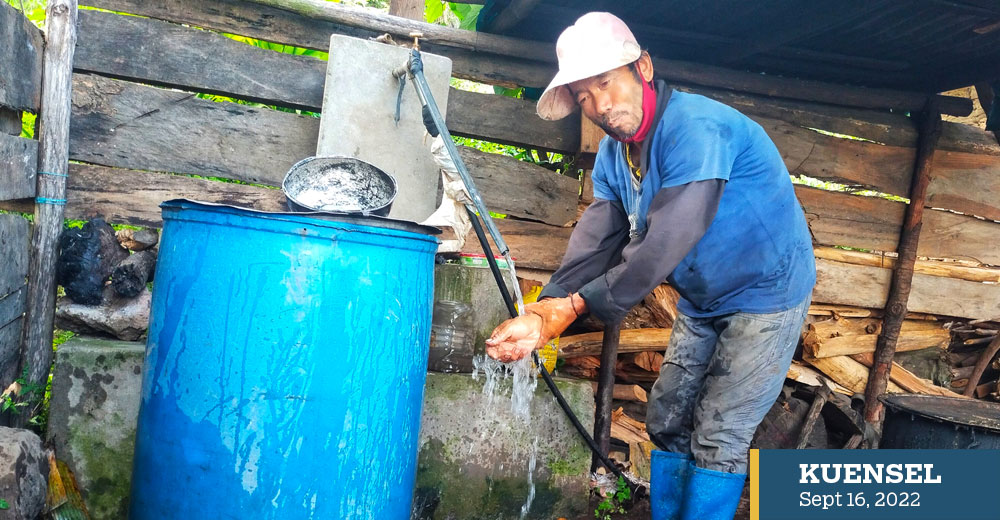Neten Dorji | Toedtsho
For the past year, residents of the upper and lower parts of Toedtsho gewog in Trashiyangtse had uninterrupted drinking water supply after decades of acute shortage.
Ever since the completion of the De-Suung water project in the gewog last year, they never worried about water.
Times were quite different before that. Most villagers of Sertsho-Bratsa and Khinyel-Togshing chiwogs drank water drawn from a pond in a marshy area. Half the village relied on a single tap for drinking water.
Residents said since they face water problems frequently, sometimes they had to stay without water for a week.
“It was challenging for us to fetch water from the pond,” said a resident, Sonam Choden from Braksta village. “We didn’t have water all the time. The problems worsened in the monsoon because the pipes got blocked frequently.”
Another resident, Sonam Zangmo said that they were managing the water supply from Dungdung Yey and the pond near the village was not enough.
“With an increasing number of households, the pressure on the old source was mounting every year.”
In the past, villagers fetched water in jerry cans and carried them home on their backs.
A villager, Moku said that because of de-suups they did not have to contribute even a single day of labour to the Nu 8.5 million project.
“As a modest show of respect and appreciation to them, we often cooked meals for them,” said the 50-year-old.
Most of the villagers say the water supply has been continuous and villagers of the two chiwogs were happy with enough water round the clock.
Therchen Lhamo, a mother, said, “You only begin to know the value of water when you live in an area with acute water shortage.”
She said that no one in the village wastes water.
Toedtsho Gup, Dechen Wangdi said villagers of Braksa-Sertsho and Khinyel-Togshing chiwogs have benefited from the project.
“The project has tapped two water sources to solve the water shortage problem,” said the gup. “Except for a few villages, all villagers have appointed their caretaker to look after the water. We also monitor if they keep their taps on.”
The water supply benefited 238 households besides Schools, Basic Health Unit (BHU), gewog centre, shops and Renewable Natural Resources(RNR) officials in Toedtsho gewog.


